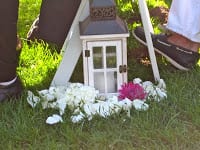The human brain loves a shortcut. Maybe not as much as my Dad did, driving through the rural back-roads of Oregon, but pretty close, I think. The look of pure satisfaction on his face as he turned in the opposite direction that we expected him to, the glee when he discovered a different route that would shave minutes or seconds off of our trip, it was a thing to behold. Cheating the system, cutting a corner, figuring out a pattern and exploiting it – that was the stuff of legend in our household and always good for a cheap thrill. I took notes as a kid, and my brain followed suit, laying down a nice flat steamrolled bed of gravel and pouring some asphalt over the top of it. Streamlining the process for the next time and feeling smug that I had discovered a better way, a faster way, a more efficient way to deal with all sorts of things, not just how to get from Point A to Point B.
After a few times of traveling that new road my brain laid down, it increased the speed limit for me. How nice, I thought, I barely even need to think about this anymore. It has become reflex to react in this particular way to this particular set of events. And, often, it was nice. It was time-saving. But when I got to the point where I could navigate those paths blindfolded and in my sleep, I forgot that they were crafted by a child.
When I was a kid, my brain laid down a path to being okay with people leaving. Forged over the span of a few years as some pretty critical folks peeled off and left, it gave me a way to shortcut the hurt whenever I suspected someone else was about to go. I used that road for a long time, and I got really good at it. The signage on that road went a little something like this:
GO AHEAD. I’M FINE.
and
I’M DONE WITH YOU, ANYWAY.
Long-time readers may recall that about ten years ago, Bubba was really sick with some mystery illness. He was in and out of the hospital every few months for days at a time and it took many doctors over three years to figure out what was wrong. But in those three years or so, he did his level best to keep on keeping on in-between episodes, continuing to travel internationally for work and provide for the four of us. This meant that on a few occasions, he would fall seriously ill in a foreign country and I would get a phone call in the middle of the night – from Prague or China or somewhere that felt really, really far away. That path went from a foot-worn deer path in my brain and heart to a full on superhighway.
GO AHEAD. WE’LL BE FINE.
When he was home, I was guarded but loving. Affectionate and caring but ready to pull away just in case. As if that shortcut would circumvent the deep wellspring of despair I would have plunged into had anything happened to him. As if I could distance myself enough emotionally to be able to just carry on if he were gone for good.
And yet. That shortcut beckoned. My brain saw that path as the well-lit one studded with diners and rest stops along the way and it was so well-traveled that I could barely discern the other road off to the side.
These days, I’m working on creating a new path. As Bubba readies himself for another long trip and Eve pulls away more and more in search of a new kind of independence and Lola hits the stage where her bedroom is the best room in the house (as long as she’s in there alone or with a girlfriend), I am discovering that that old highway is no longer useful. It never really got me where I needed to go, anyway. There’s no getting around the hurt when someone leaves. So instead of pulling away preemptively, I’m going to hang on a little tighter. I’m going to squeeze every last drop of affection out of the time I do get with these amazing people and hopefully the signs on my new road will read
I LOVE YOU AND I MISS YOU.
GLAD WE HAD THIS TIME TOGETHER.




